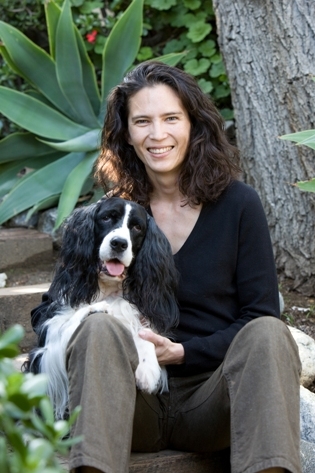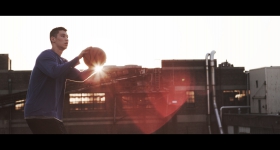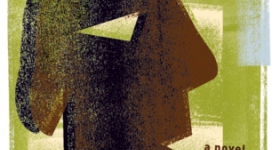There is a passage in Nina Revoyr's latest novel Wingshooters that evokes a scene from To Kill A Mockingbird. Charlie LeBeau and his granddaughter Michelle are playing baseball out in the country when they see a flock of Canada geese flying overhead. They pause reverentially, caps in hand, to watch them, and Charlie tells Michelle that the geese are headed south for the winter. “They take the same path every year. They mate for life, and when they have babies, the whole family stays together until the young ones are grown. They even make the first few migration trips together so the parents can teach them how to do it. What we were looking at just now was a whole little town of them.” “They’re not for hunting,” he adds. “I mean, you can hunt them, but I don’t. Never have. There’s something about the idea of breaking up those families.”
The scene from To Kill A Mockingbird, of course, is the one in which Atticus admonishes Jem to “remember it's sin to kill a mockingbird,” because mockingbirds “don't do one thing but sing their hearts out for us.”
Wingshooters takes after To Kill A Mockingbird in many ways; it is a coming-of-age story told from the perspective of a young girl, and deals with themes of race, class, violence, and loss of innocence. Yet Wingshooters, set four decades after To Kill A Mockingbird, also reflects more contemporary racial politics. The year 1965 had seen the passing of the Immigration and Naturalization Act, which changed America's demographics forever. Race is no longer simply a matter of blacks versus whites, nor is it an issue geographically limited to the South or urban ghettoes.
Most of the novel takes place in rural Wisconsin in 1974, just as the social changes of the preceding decade are starting to latently reverberate there. Narrated in retrospect by the mixed race white and Asian Michelle, now grown and living in Los Angeles, the novel centers around the relationship between Michelle and her white grandfather, Charlie, whose lives are disrupted when a black couple moves into their town.
Michelle is nine years-old, the child of a white American father and a Japanese mother (not Japanese American, she tells us, but “born-and-raised-there Japanese”). When her parents' marriage falls apart, Michelle is indefinitely left under the care of her paternal grandparents, who live in small, rural Deerhorn, a town uneasy with outsiders of any kind, much less foreigners. “They'd been scandalized by my father's marriage -- for many of them, my mother was the first non-Caucasian person they'd ever laid eyes on -- and now, in their minds, by bringing me back, he was inflicting on them the terrible fruit of his sins.” Despite their own objections to their son's marriage, the grandparents embrace their granddaughter. Charlie, Michelle's grandfather, especially dotes on her, whom he nicknames Mike. The two are inseparable: he takes her hunting, sneaks her sips of his beer, throws the ball with her until dusk.
However, when a young black couple from Chicago move into the town, the people of Deerhorn, including Charlie, are pushed beyond their comfort zones, until the agitation within the community finally reaches a fatal climax. Though Michelle lives through the tragedy sufficiently intact to tell the story, the experience is traumatic, results in hard lessons, and she is forever changed. By the end of the novel, we understand the significance of the title.

Nina Revoyr
The great strength of this novel is in its nuanced view of the townsfolk, including Charlie. Revoyr understands that racism is not an abstract evil. Many in the town are xenophobic and bigoted in ways typical of their time and place, and while Revoyr does not let them off the hook, she does not paint them as a homogeneous lot. Nor is Michelle’s educated, progressive-minded father given higher moral ground. For all his talk about “freeing people's minds, expanding their lives,” he is feckless and unreliable as a father. In the postcards he sends from the road, he updates her on his supposed search for her mother in hopes of reconciliation, but we sense, as Michelle must suspect, that he is searching as much for himself.
The novel is most eloquent and lyrical in its depiction of Michelle and Charlie's relationship. Although Michelle adores and respects her grandfather -- in many ways, the novel is a tribute to him -- she is clear-eyed when it comes to his prejudice. “Let me make this very clear -- my grandfather was a bigot. He wasn't shy about using racial epithets, or blaming blacks or Jews or Democrats for all the country's problems. But it enraged him that the town did not embrace me.” It is the same clarity and compassion that Barack Obama showed when in his 2008 “speech on race,” he described his white grandmother as “a woman who helped raise me, a woman who sacrificed again and again for me, a woman who loves me as much as she loves anything in this world, but a woman who once confessed her fear of black men who passed by her on the street, and who on more than one occasion has uttered racial or ethnic stereotypes that made me cringe.”
Wingshooters understands what many of us know from experience: that love and hate can spring from the same source, that bigotry can coexist in the hearts of people who have shown us the tenderest of love.
Shinwha Whang grew up in California. She currently lives in Madison, Wisconsin.









Comments